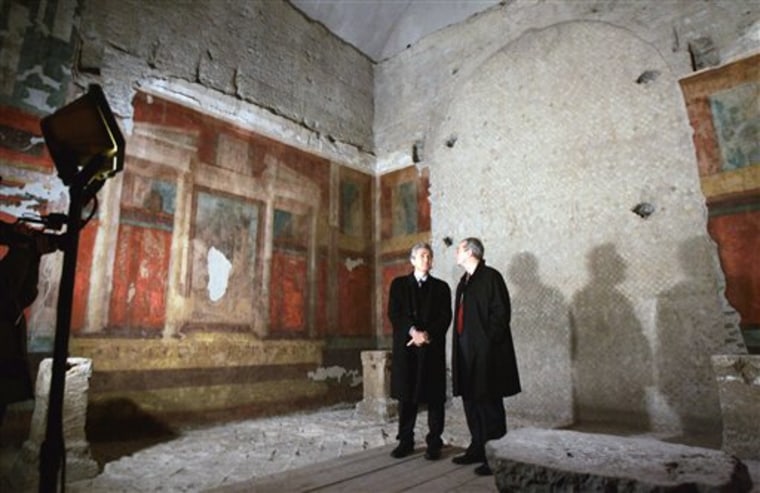Emperor Augustus' frescoed palace atop Rome's Palatine Hill, one of the city's famous seven hills, will partially reopen to the public March 2 after decades of restoration work, officials said Monday.
Since the palace was closed in the 1980s, experts have spent at least $17.6 million to restore the porticoed garden of Rome's first emperor and piece together precious frescoes that time had reduced to fragments. The palace was built in the first century B.C.
Groups of up to 10 people will be guided through the decorative marvels in Augustus' studio and in the hall where the emperor received guests, as well as rooms in the nearby palace built for his wife, Livia.
"We can finally enter into these places that have been preserved for some 2,000 years," said Rome Mayor Walter Veltroni.
Restoration of other parts of the residence will continue, officials said.
Augustus seized control in the power struggles following the assassination of his great-uncle, Julius Caesar, and ruled Rome from 29 B.C. until his death in A.D. 14. Revered by contemporaries as a wise and godlike leader, he ushered in a period of peace and prosperity for the empire.
The word "palace" comes from the name of the Roman hill, once the place of choice for Rome's rich and powerful and today a treasure trove for archaeologists.
Last month, officials unveiled an underground grotto next to Augustus' palace and believed to have been revered by ancient Romans as the place where a wolf nursed the city's legendary founder Romulus and his twin brother, Remus.
The Palatine is honeycombed with ruins, from the eighth century B.C. remains of Rome's first huts to a medieval fortress and Renaissance villas. The remains are fragile and plagued by collapses, forcing officials to close many of the sites to the public.
